One year after a police raid in northern British Columbia attracted international attention, tensions between Wet’suwet’en land defenders and Coastal GasLink are rising once again.
The company’s recent victory in winning a court decision granting it a permanent injunction against Indigenous protest camps was short-lived.
On Saturday, Wet’suwet’en Hereditary Chiefs evicted the company from their territory.
“Coastal GasLink [CGL] has violated the Wet’suwet’en law of trespass, and has bulldozed through our territories, destroyed our archaeological sites, and occupied our land with industrial man-camps,” a statement from the chiefs said. “Private security firms and RCMP have continually interfered with the constitutionally protected rights of Wet’suwet’en people to access our lands for hunting, trapping, and ceremony.”
The company confirmed Sunday that it had received the eviction notice.
“We have reached out to better understand their reasons and are hopeful we can find a mutually agreeable path forward,” it said in a statement.
The company said trees had been felled across a road, making it impassable. “While it is unclear who felled these trees, this action is a clear violation of the Interlocutory Injunction as it prevents our crews from accessing work areas.”
Molly Wickham (Sledyo’), one of the land defenders, said last month she feared the then-impending court decision would bring more conflict.
As Wickham stirred a simmering moose stew on a wood stove in the cook tent at Gidimt’en camp, she worried the judgement might bring a repeat of last year’s RCMP raid.
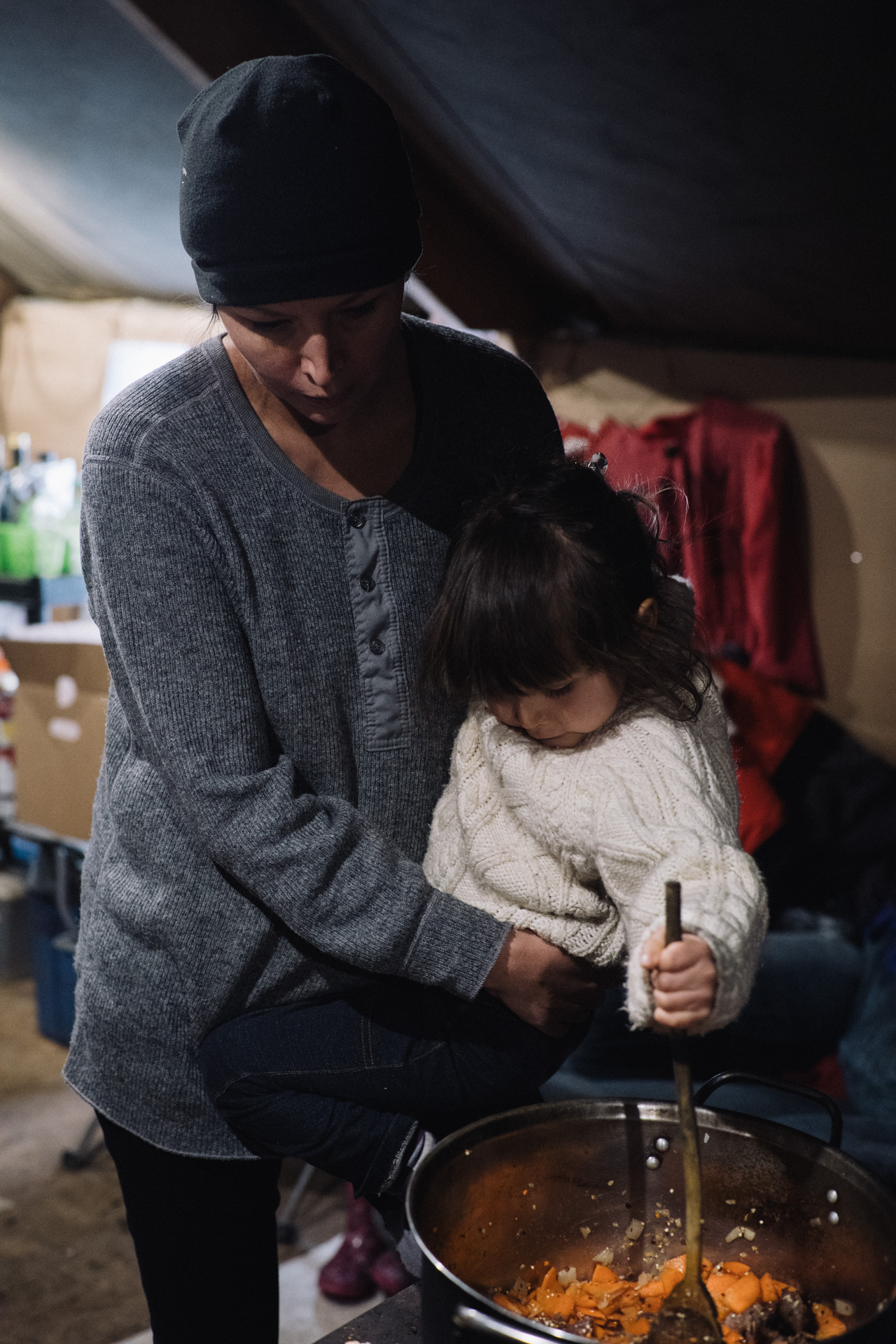
On Jan. 7, 2019, RCMP officers forced their way past a barricade at the camp on the Morice West Forest Service Road. Police were enforcing an injunction obtained by CGL, which is building a $6.2-billion pipeline to take natural gas to a planned liquefied natural gas project in Kitimat.
Wickham and her family had recently moved to Gidimt’en, a new camp about 60 kilometres south of Smithers. They were occupying the territory where their ancestors had lived since time immemorial.
“Then the RCMP came and destroyed everything,” she said. “It’s unnerving that might be our reality again.”
The camp and its structures have been rebuilt in the past year. Shipping pallets have been used to create palisades that hide the presence of police patrols that have continued throughout 2019.
While the injunction order is not yet public, it’s expected to reflect the proposals from CGL. In addition to banning protesters from interfering with the pipeline company’s access to the area, the document allows CGL to remove cabins that are “impeding or preventing access to the worksites” with 72-hours’ posted notice.
Wickham said that CGL had expressed interest in using the roadside pullout where the Gidimt’en camp is located as a staging area for construction crews and equipment.
Known as Gidimt’en Access Point, the camp is the second constructed along this remote forestry road. The Unist’ot’en Healing Centre, built a decade earlier, is 20 kilometres farther west along the Morice Forest Service Road.

In addition to hosting clan members looking to re-connect with their culture, the camp had been preventing TC Energy (formerly TransCanada), the Calgary-based company building CGL, from accessing a swath of land slated for the pipeline.
The story of the camp goes back to Dec. 14, 2018, when the B.C. Supreme Court first granted an interim injunction allowing CGL to access the territory.
Three days later, with unanimous support from hereditary chiefs of the five Wet’suwet’en clans, the Gidimt’en joined the Unist’ot’en in occupying the land. On Dec. 21, the company’s injunction was amended to include all protest camps in the area.
By Jan. 6, everyone was on edge. There were reports of dozens of RCMP vehicles mobilizing in the nearby communities of Smithers and Houston. The buildup of forces was quickly condemned by the Union of BC Indian Chiefs and the BC Civil Liberties Association.
It was the grader that tipped off Wickham. In the wake of a wet and heavy snowfall, the maintenance vehicle had scraped the road’s surface smooth all the way to Gidimt’en camp. Then it turned around.
“They weren’t keeping the roads nicely maintained for us,” she said. The children that had so recently played in camp were taken to stay with family.
“I don’t think anybody slept that night,” Wickham said.
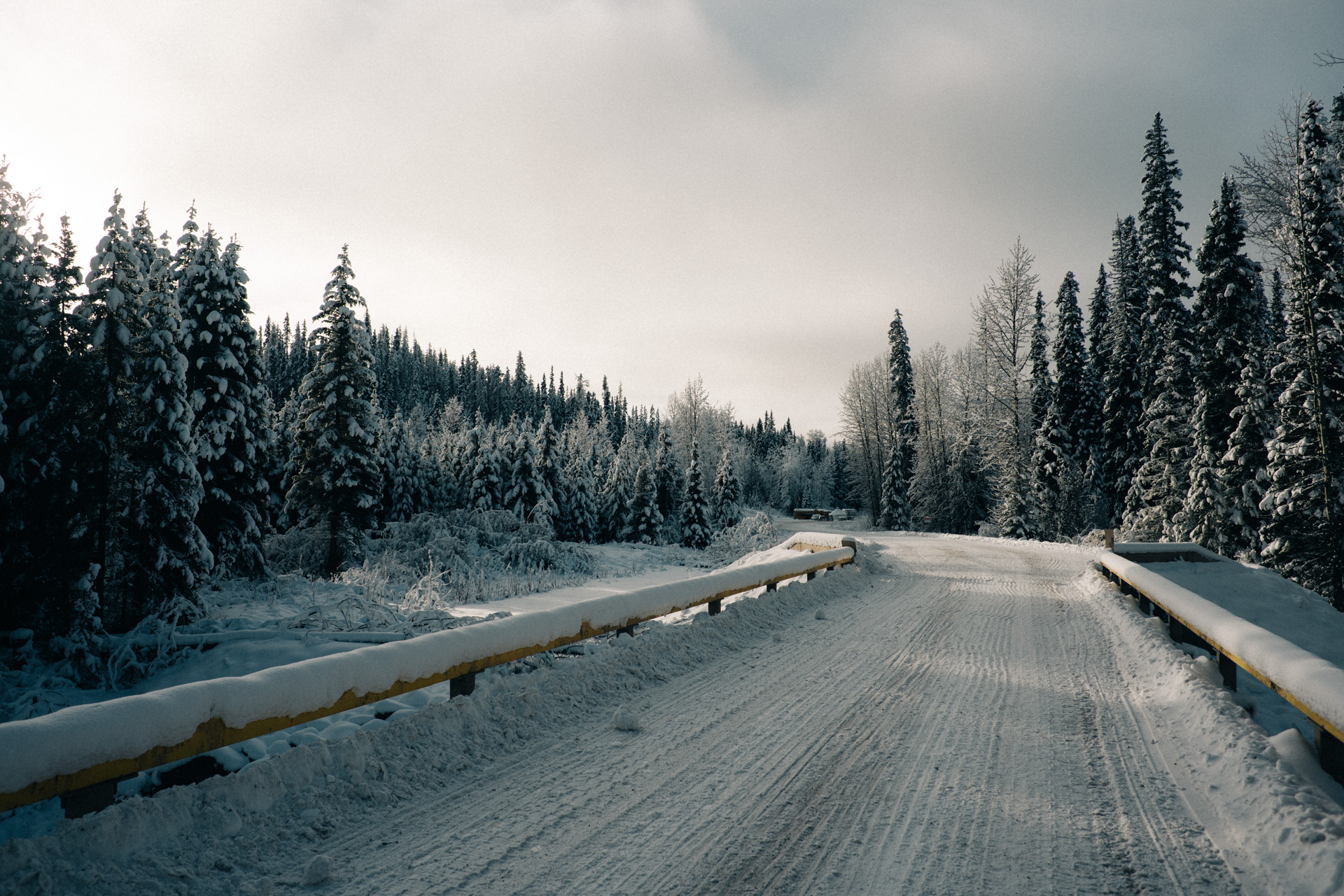
By mid-morning on Jan. 7, the police had arrived. Beyond the barricade, at least two-dozen RCMP and industry vehicles lined the road. Two snipers were in place.
Amidst screaming and the sound of helicopters circling overhead, Wickham leaned her back against the gate and sank to the ground. She thought she might throw up.
“It was really clear that they didn’t care,” she said.
What Wickham didn’t know then was that the RCMP were prepared to use lethal force in the operation to remove the barricades preventing CGL from accessing the pipeline route. The RCMP’s plans were revealed last month by a report in the Guardian.
In the late afternoon, officers breached the gate and arrested 14 people, taking them to Houston for processing and then on to Prince George, where they were held overnight.
In the following days, thousands of people marched in rallies across Canada and around the world supporting the Wet’suwet’en. While media attention on the conflict may have waned over the past year, the RCMP presence on the Morice forest road has not.
Here’s an overview of what’s unfolded over the past year.
On Jan. 10, 2019 three days after police breached the gate, the Unist’ot’en allowed workers to enter the camp peacefully after hereditary chiefs reached an agreement with RCMP. Posted on the camp’s website was a message: “This is not over.”
“The agreement we made allows Coastal GasLink to temporarily work behind the Unist’ot’en gate. This will continue to be a waste of their time and resources as they will not be building a pipeline in our traditional territory,” it reads.
The same day, RCMP announced there would be a continued police presence on the Morice forest road and a remote detachment known as a Community-Industry Safety Office that would remain in place “as long as is deemed necessary.” Last week an RCMP spokesperson declined to say how many officers are stationed at the detachment and described police resources as “scalable based on circumstances.”

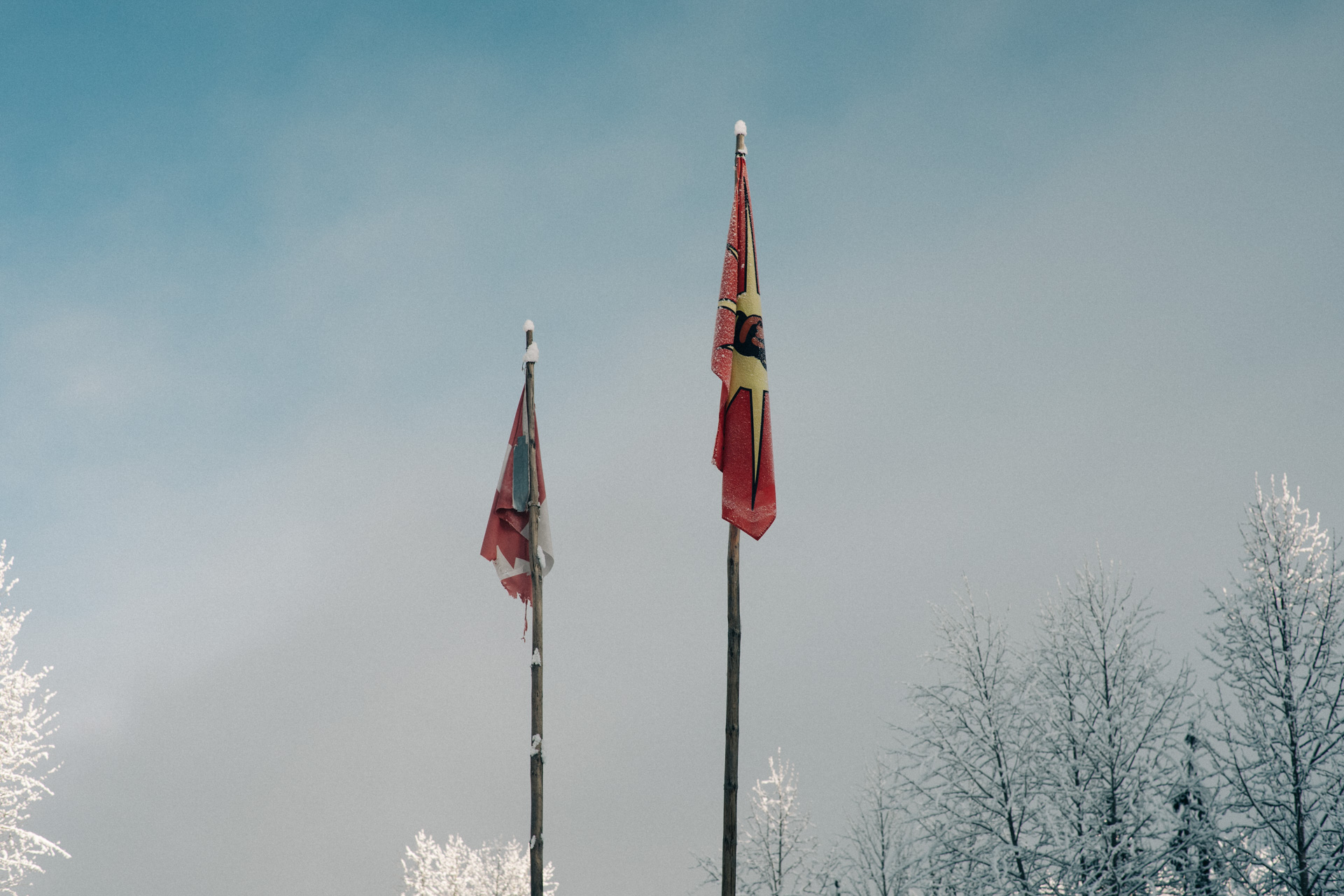
On Jan. 28, with RCMP standing by, workers for CGL used heavy machinery to tear down structures at the Gidimt’en camp.
On March 16, John Horgan became the first B.C. premier to attend a feast on Wet’suwet’en territory in Witset (formerly Moricetown). The premier promised to implement the United Nations Declaration on the Rights of Indigenous Peoples.
“This fall, we’ll be tabling legislation to give meaning to [Indigenous] rights that were given by the United Nations but not yet picked up in Canada or in British Columbia,” he told more than 100 people gathered, including Minister of Indigenous Relations and Reconciliation Scott Fraser, Minister of Forests Doug Donaldson and then-federal MPs Nathan Cullen and Murray Rankin.
On April 15, civil charges against all 14 people arrested on Jan. 7 were dropped. Two criminal assault charges (one not laid until October) remain and are expected to be before the court this month.
On April 24, at United Nations headquarters in New York City, Unist’ot’en spokesperson Freda Huson (Howilhkat) and Chief Na’Moks of the Tsayu clan addressed the UN Permanent Forum on Indigenous Issues and described human rights violations in B.C.
“Indigenous legal orders and Indigenous systems of governance must be recognized and respected and not trampled upon in the interests of corporate development,” Na’Moks told the UN.
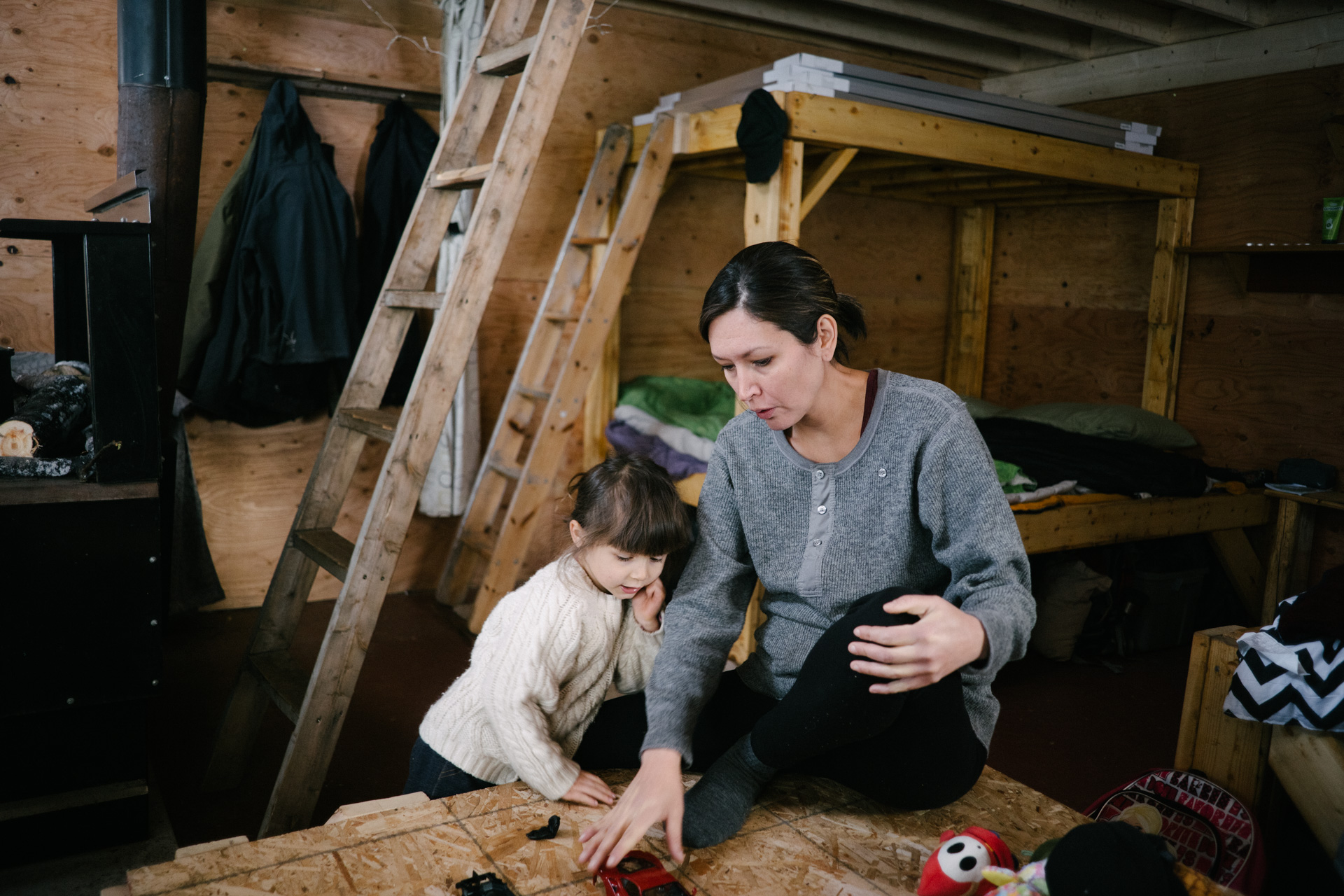
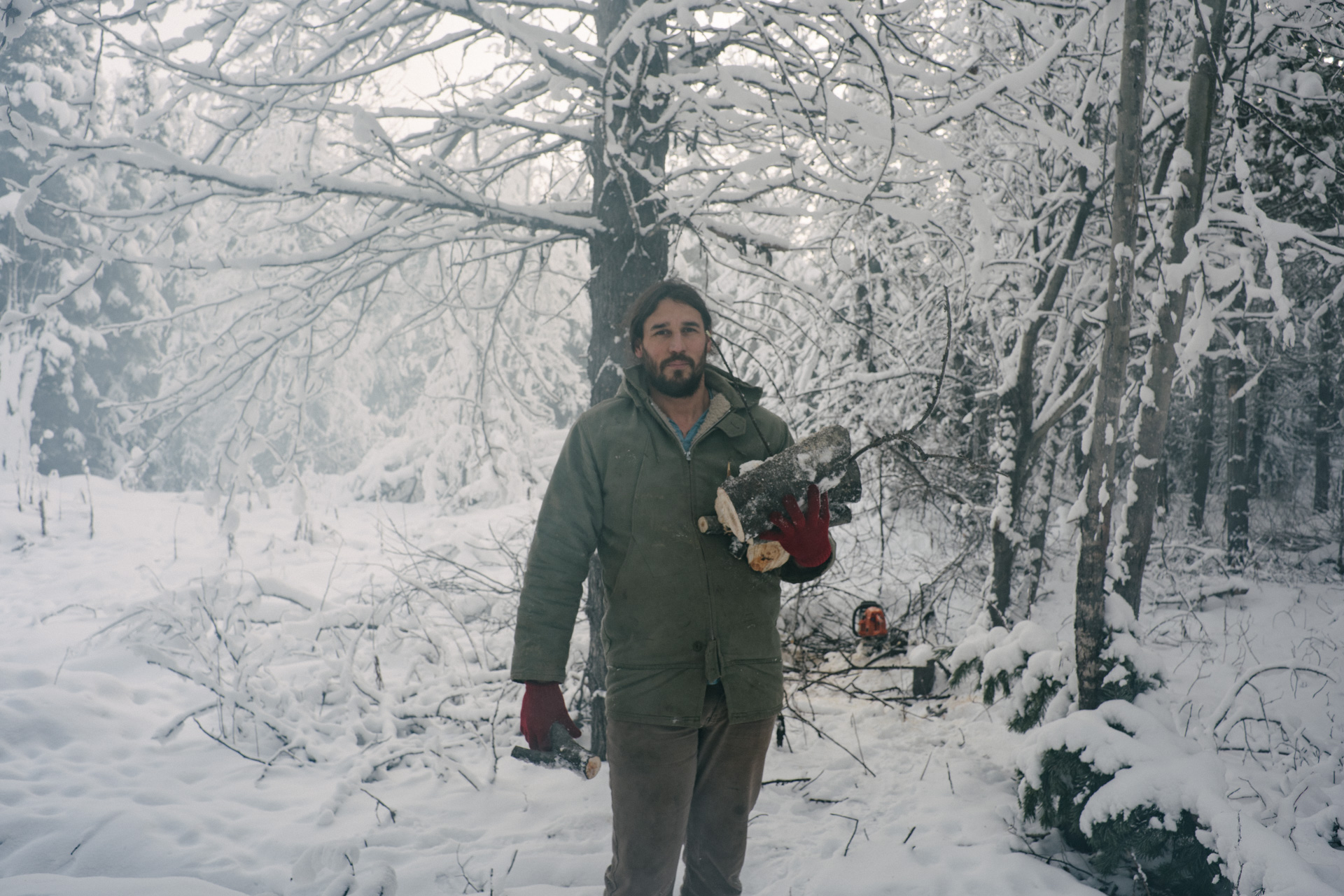

On July 22, Wickham filed civil charges in B.C. Supreme Court against CGL and its contractors for special damages, aggravated damages, punitive damages and costs with interest for the Jan. 28 demolition of camp structures. The claims are still before the court.
“These avenues of compensation do not even begin to approach the cost of the violence of these companies invading traditional Wet’suwet’en territory. The spiritual and emotional traumas these companies have inflicted on the Wet’suwet’en are tremendous and grave,” the Gidimt’en said in a news release.
On Aug. 1, CGL revealed that archaeological impact assessments had not been completed for two areas, totalling 32,400 square metres, prior to the start of construction.
“As a condition of our permit issued by the BC Oil and Gas Commission (OGC) and our Environmental Assessment Certificate, Coastal GasLink is required to have approved [assessments] in place for areas in advance of land disturbance,” reads a statement that has since been removed from the company’s website. “Our audit determined that this did not take place for two areas on the right-of-way in Section 8, near kilometre posts (KP) 585 and 631.”
On Oct. 4, Wet’suwet’en hereditary chiefs issued a statement demanding CGL cease work after several cultural sites were destroyed. “Since February 2019, CGL has destroyed numerous archaeological heritage sites in Wet’suwet’en territory. In addition to potential village sites, portions of the ancient Kweese War Trail, accompanying culturally modified trees, and potential burial sites have been altered and destroyed by CGL work crews.”
“The Wet’suwet’en Hereditary Chiefs believe that a stop-work order must be enacted immediately to prevent further loss of Wet’suwet’en heritage by the negligence of Coastal GasLink. The OW [Office of the Wet’suwet’en] takes the loss of Wet’suwet’en cultural heritage and archaeological sites very seriously, as should any company or government agency working within Wet’suwet’en territories.”
On Oct. 24, Fraser introduced Bill 41 the United Nations Declaration on the Rights of Indigenous Peoples Act, in the legislature. The bill passed unanimously on Nov. 28. It made B.C. the first province to recognize the declaration, which states that Indigenous peoples shall not be forcibly removed from their lands and have the right to determine what happens on their territories.
On Dec. 20, the Guardian published an explosive report revealing that RCMP officers were told to use “lethal overwatch” and to “use as much violence toward the gate as you want” during the Jan. 7 police action.
On Dec. 31, the B.C. Supreme Court ruled in favour of CGL’s temporary injunction, making it permanent until pipeline work is completed. Lawyer Michael Ross, who represented those opposing the injunction, says it’s too soon to say whether those named in the injunction will appeal. He added that the decision was disappointing in its lack of recognition for Indigenous law.
“I think, from my client’s point of view, this judge should have done more in recognition of their law, and could have done more,” Ross said. “We’ve seen other judges do better, even when they haven't taken the Indigenous perspective... This is doubly disappointing.”
On Jan. 3, 2020 CGL was notified by Dark House, also known as the Unist’ot’en, that it intends to terminate an access agreement effective Jan. 10.
On Jan. 4, Wet’suwet’en Hereditary Chiefs issued an eviction notice to the company. ![]()
Read more: Indigenous, Energy, Rights + Justice



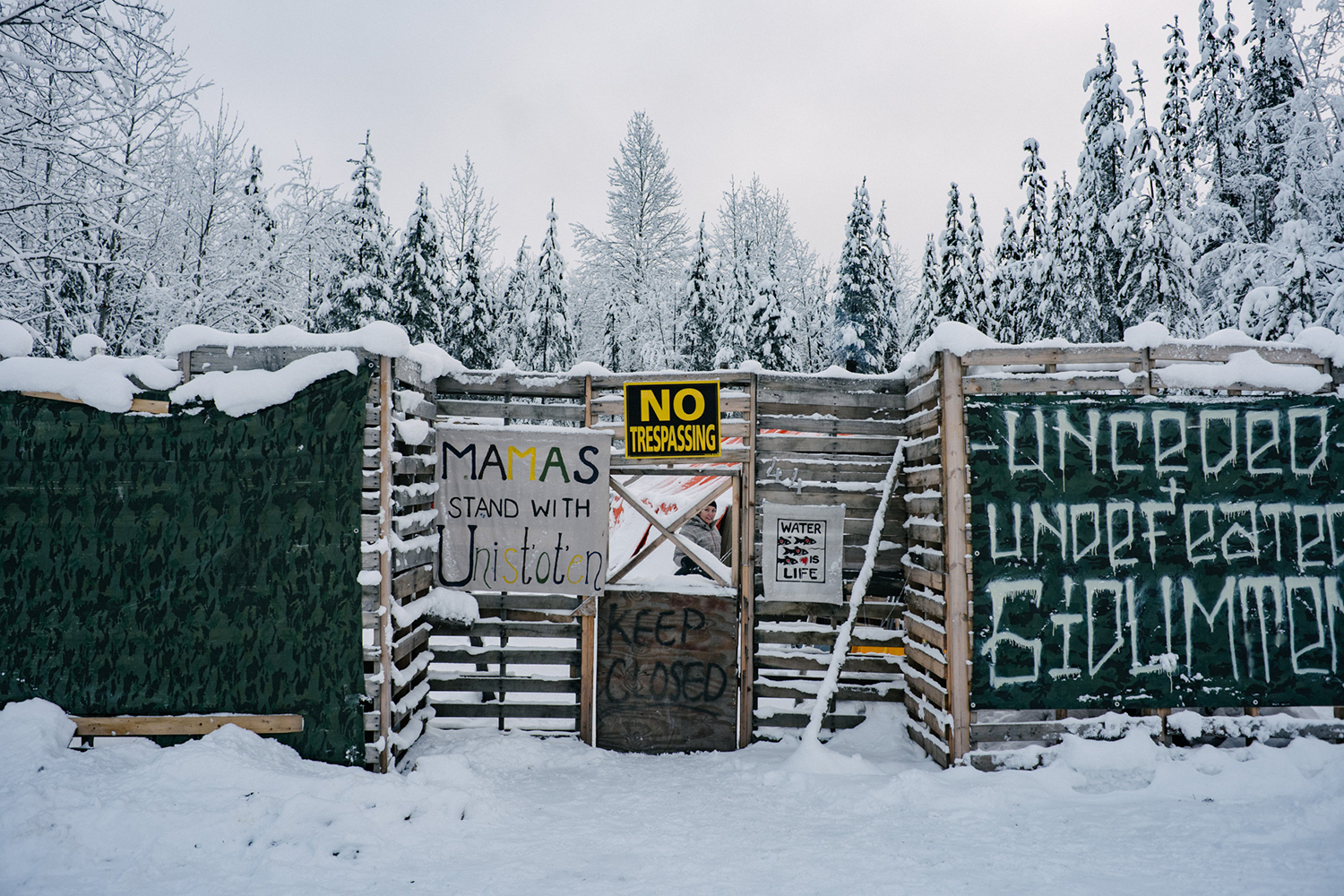












Tyee Commenting Guidelines
Comments that violate guidelines risk being deleted, and violations may result in a temporary or permanent user ban. Maintain the spirit of good conversation to stay in the discussion.
*Please note The Tyee is not a forum for spreading misinformation about COVID-19, denying its existence or minimizing its risk to public health.
Do:
Do not: